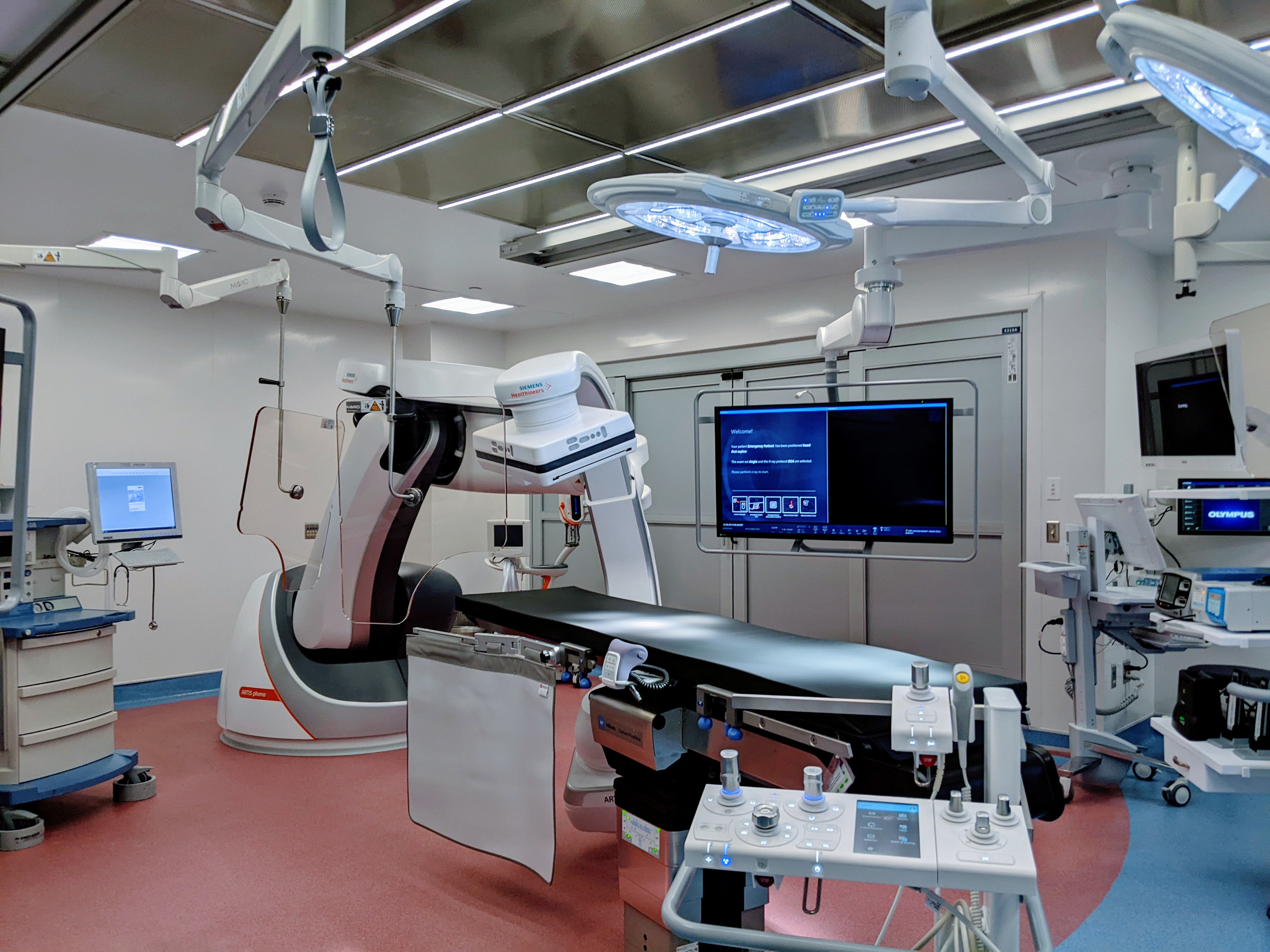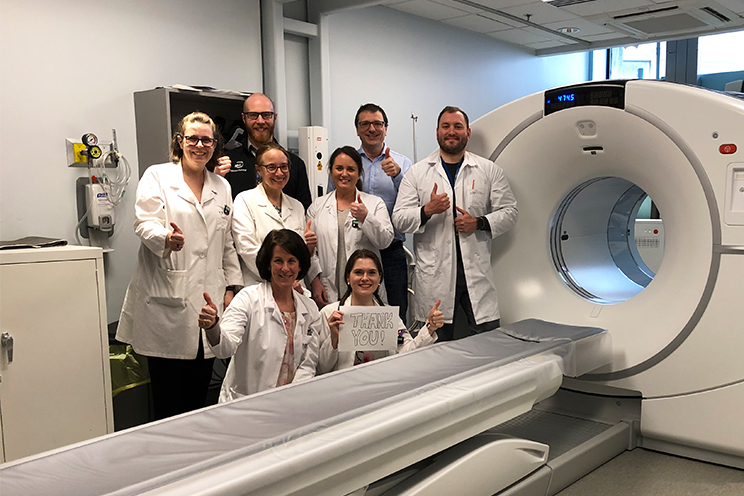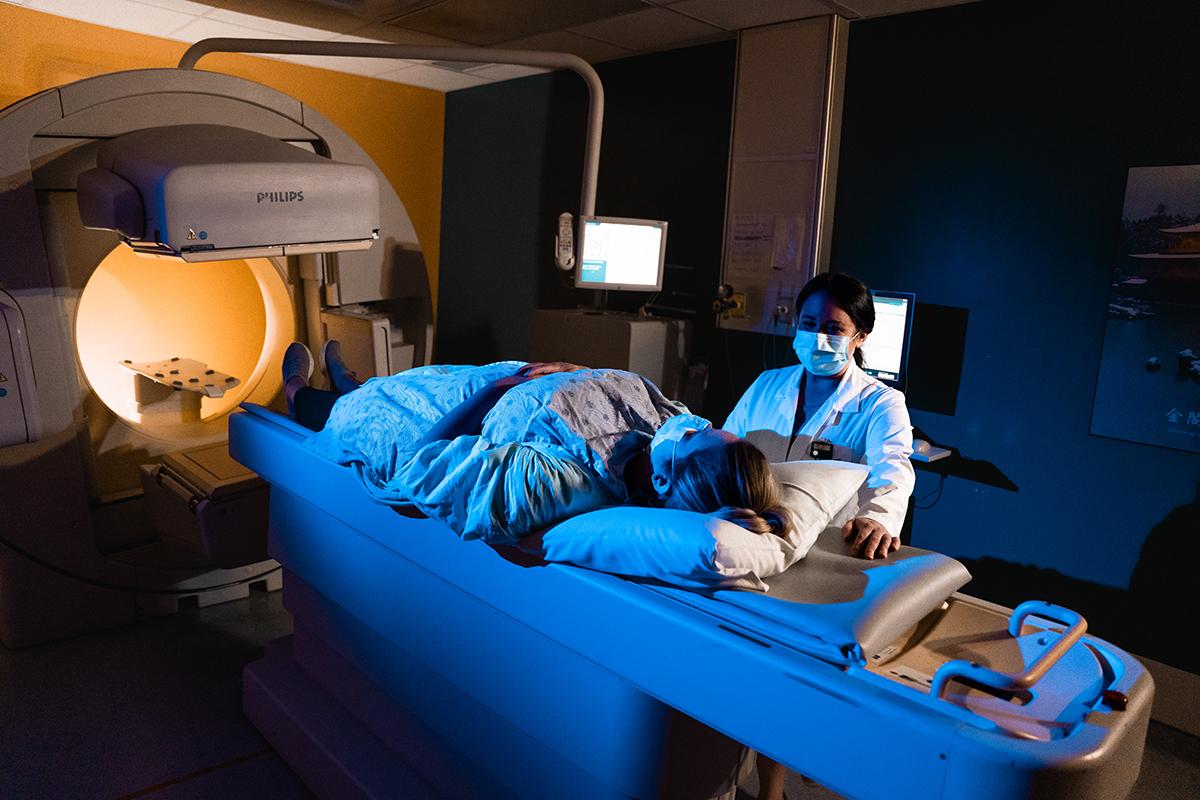Originally published in QEII Times.
QEII’s pioneering approach to women’s heart health
Author: Colleen Cosgrove
In the bustling corridors of the QEII Health Sciences Centre, a revolution in heart health is underway, particularly for women. Nicole Nickerson’s journey, marked by personal loss and her own battles with heart disease, epitomizes the transformative care provided at the Maritime Heart Centre Women’s Heart Health Clinic (MHC-WHHC) at the QEII.
Ten years ago, tragedy struck Nicole Nickerson’s life when her sister, Ashley Hartman, died suddenly of heart disease at 25.
“Both my parents had heart attacks at really young ages, but we never thought it would be hereditary,” Nicole recalls. Despite undergoing numerous tests, Nicole’s heart condition remained undetected until a harrowing experience in Bridgewater’s emergency department.
“They told me it was impossible for me to be having a heart attack,” she shares, highlighting a common misdiagnosis issue in women’s heart health. It wasn’t until a female doctor intervened two days later that Nicole’s condition was correctly identified.
Later pregnant with her second child, Nicole suffered a second heart attack. This time on the anniversary of Ashley’s death. After a few terrifying hours in hospital, advocating for herself, she and her unborn baby were airlifted from the South Shore to the IWK Health Centre where Nicole delivered a healthy baby boy, but required immediate and ongoing cardiac support at the QEII.
Nicole’s life-altering encounter with Dr. Sharon Mulvagh at the MHC-WHHC marked a turning point.
“Dr. Mulvagh treated me like a human … she gave me a sense of hope,” Nicole says. Under Dr. Mulvagh’s care, Nicole found her voice, leading her to become the head of advocacy for the Canadian Women’s Heart Health Alliance.
“I do it in honour of my sister,” she says, stressing the importance of self-advocacy and listening to one’s body.
The clinic’s pioneering approach
Dr. Mulvagh, co-founder of the MHC-WHHC, sheds light on the unique challenges in women’s heart health. With its specialized focus on conditions like Spontaneous Coronary Artery Dissection (SCAD) and stress cardiomyopathy, the clinic is a pioneer in understanding and addressing women’s heart health needs. Nova Scotia and Newfoundland have the highest rates of cardiovascular disease in Canada. Maritime women experiencing heart disease are referred to the clinic for personalized care and support.
“Women are not the same as men when it comes to cardiovascular disease,” Dr. Mulvagh explains, emphasizing the distinct pathophysiology in women. She points out that women often experience heart attacks without blockages in major arteries, a phenomenon overlooked in traditional medical training.
“Certainly, women can get blockages in their heart arteries just like men, but more often when they come in with an acute heart attack, they’re two to three times more likely to have no blockages in the heart arteries. This leads to other causes of heart attacks in women that are different, such as dissections and broken heart syndrome, stress cardiomyopathy, which are both more common in women. This major disparity in awareness, diagnosis and treatment is what we’re addressing,” she says.
Raising the bar: The clinic’s mission
Michelle Morrison, Health Service Director at the Maritime Heart Centre, speaks to the clinic’s role in advancing women’s heart health.
“We’ve set the bar high, inviting women for specific assessments and creating individual care plans,” Michelle says. “Women are referred to the clinic either by physician referral or from another cardiologist. They are assessed, a treatment plan is developed, and they’re seen in-clinic as long as follow up and treatment is required. It could be periodic diagnostics like echocardiograms or stress testing.
The trajectory in terms of the disease and disease process is different for each individual, but I think that’s where we can really pride ourselves in creating an individual care plan for each and every patient that is referred to this clinic.”
The MHC-WHHC offers a range of services from diagnostics to creating individualized treatment plans. Its involvement in ground-breaking studies and initiatives like the CANSCAD and National Wear Red Day for women’s heart health advocacy marks its commitment to advancing women’s heart health.
At the heart of the clinic’s mission is a call to action for better awareness and self-advocacy. The clinic’s patient registry, innovative programs like the Women’s Cardiac Rehab, and collaborations, underscore its commitment to transforming care and outcomes for women.
“We are looking at heart disease through a sex and gender lens, which hasn’t been previously done, nor is it taught in medical schools,” Dr. Mulvagh says. “Addressing this void involves awareness, advocacy, training and education to make changes in policy and guidelines and conducting more research to understand these disparities in women and optimize treatments.”
At the QEII, a new chapter in medical care is being written, one where women’s heart health is not just seen but understood and effectively treated. With its comprehensive approach and dedicated team, the MHC-WHHC continues to redefine women’s heart health care, offering hope, treatment, and empowerment.
“Listen to your body. Advocate for yourself,” Nicole advises. “Your body’s not going to lie; if you think there’s something wrong, stand up for your rights and demand action … and if everything else fails, say you have chest pain, because they will always listen to chest pain.”
Nicole’s work, inspired by her sister and fueled by the MHC-WHHC, stands as a testament to the clinic’s impact. From the National Wear Red Day to patient education campaigns, the message is clear: women’s heart health matters.

 -19_web masthead.jpg)








